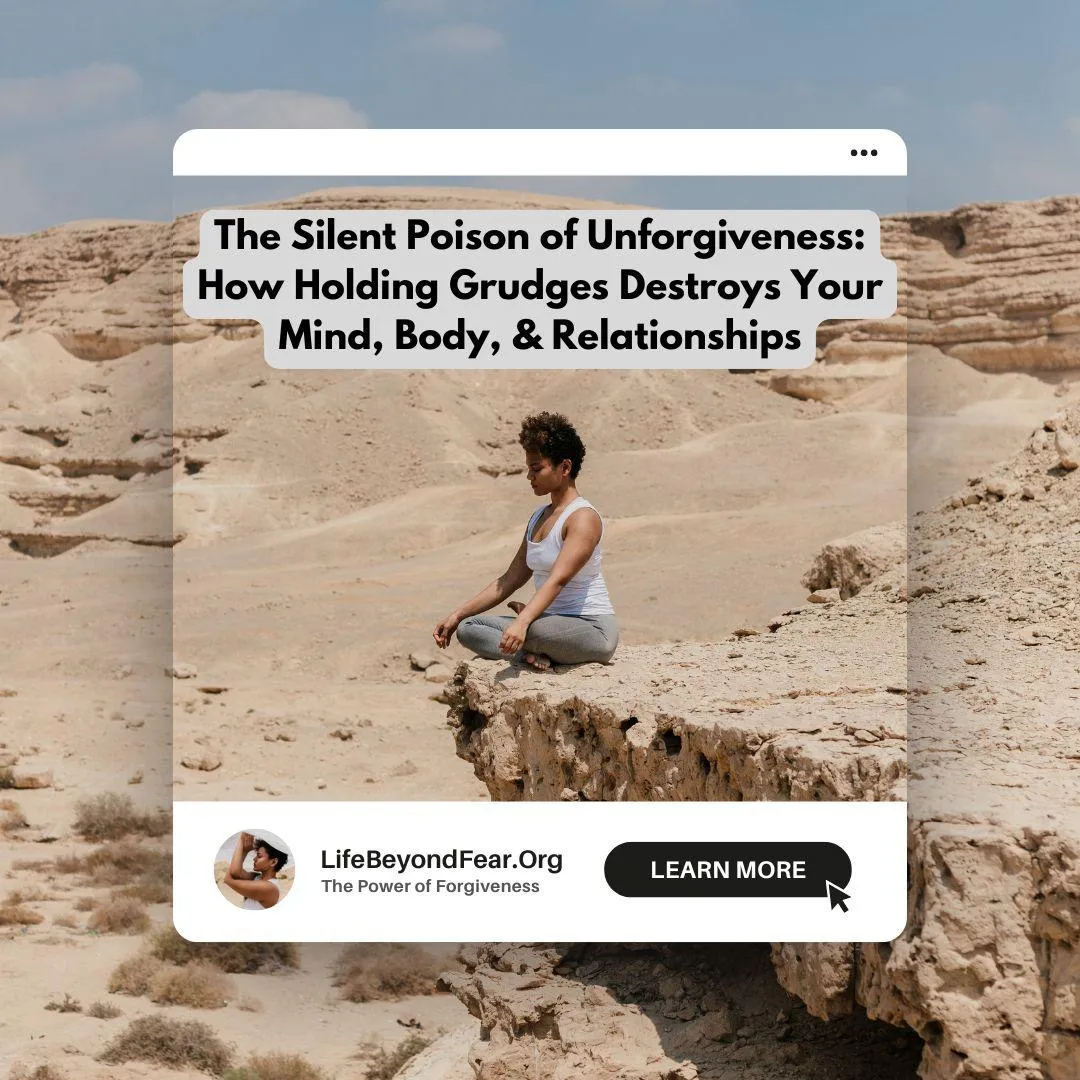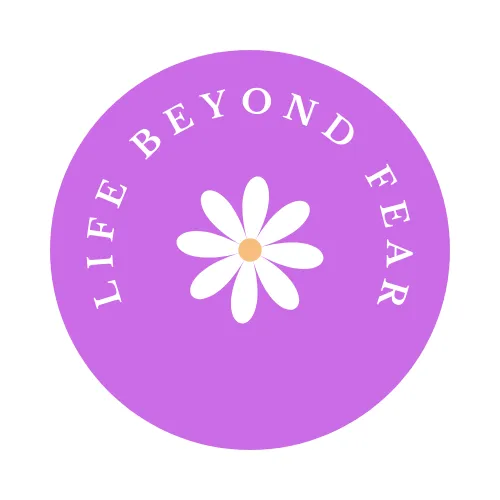There’s a whole world out there
See Newest Blogs

The Silent Poison of Unforgiveness
The Silent Poison of Unforgiveness: How Holding Grudges Destroys Your Mind, Body, and Relationships
Introduction
Unforgiveness is a silent poison.
It doesn't just influence the surface of our emotions but seeps into the very core of our well-being.
When we choose to harbour resentment, it doesn't simply affect the person we're angry with; it can become a toxic element that compromises our mental and physical health.
Understanding why unforgiveness is harmful and how to release it can pave the way for a healthier, happier life.

Psychological and Physiological Effects of Unforgiveness
Psychological Impacts
1. Chronic Stress: The unresolved resentment consistently activates the body's stress mechanisms, leading to prolonged periods of stress.
2. Depression and Anxiety: Lingering negative emotions can evolve into deep-seated depression and anxiety, impacting daily life and mental health.
3. Reduced Cognitive Function: Persistent harbouring of grudges impacts clear thinking, impairing decisions and problem-solving abilities.
Physiological Impacts
1. Higher Cortisol Levels: Elevated levels of stress hormones like cortisol can lead to chronic conditions such as hypertension and cardiovascular diseases.
2. Weakened Immune Response: Prolonged stress can suppress the immune system, making the body more prone to infections and diseases.
3. Sleep Disruptions: Anxiety and constant preoccupation with negative feelings can disturb sleep patterns, leading to issues like insomnia.
Signs of Projecting Unhealed Wounds
If you're experiencing these signs, you may be projecting unresolved trauma onto current situations:
1. Emotional Overreactions: Intense emotional responses to relatively minor events may signal deeper, unresolved issues.
2. Constant Defensiveness: A perpetual state of defensiveness could indicate internal insecurities and unresolved grievances.
3. Recurring Relationship Issues: Seeing similar conflicts in different relationships might suggest that past hurts are influencing present dynamics.
Strategies and Coping Mechanisms
1. Cultivate Self-Awareness
Recognise when you are holding onto negative emotions. Keeping a journal can help you identify and manage these feelings.
2. Practice Mindfulness
Engage in mindfulness practices and meditation to refocus your thoughts and find peace within.
3. Seek Therapy
Professional therapy can provide structured guidance to help you navigate through past traumas and work towards forgiveness.
4. Develop Empathy
Try to understand the perspective and circumstances of the person who wronged you. Empathy can often soften resentment.
5. Focus on Positivity
Shift your focus to positive experiences and gratitude. This redirection can diminish the hold of negative emotions.
Overcoming the Prison Guard Metaphor
Holding someone in the prison of unforgiveness binds you as well, making you both prisoners to the past. This metaphor highlights the reciprocal nature of emotional imprisonment.
Benefits of Forgiveness
Psychological Benefits
1. Less Stress and Anxiety: Letting go of grudges can lead to reduced anxiety and a calmer mind.
2. Improved Mental Health: Forgiveness can alleviate depression symptoms and encourage a positive outlook.
3. Better Cognitive Function: A mind free from resentment operates more clearly and efficiently.
Physiological Benefits
1. Lower Blood Pressure: Releasing anger can reduce high blood pressure.
2. Stronger Immune System: Less stress means a more resilient immune system.
3. Improved Sleep Quality: Forgiveness can result in better, more restful sleep.
Life Choices and Relationships through Forgiveness
Being able to forgive transforms your interactions. It leads to healthier relationships, more thoughtful life choices, and a fuller, more satisfying existence.
By understanding the harmful effects of unforgiveness and implementing strategies to move past it, we open the door to a life of emotional freedom and physical health.
Reflection
Which of these strategies resonates most with you for starting your journey towards forgiveness?

Copyright ©LifeBeyondFear.Org. All Rights Reserved.
Unlock the secrets to improving relationships at work, at home, and most importantly, with yourself. Discover the transformative power of meaningful connections and self-understanding.
